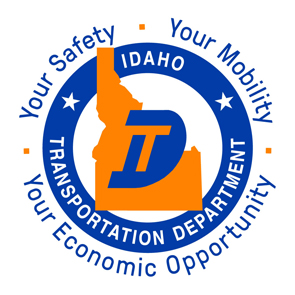
Final off-site Board meeting will feature ITIP approval, review of federal funds, and risk management report
Approval of the seven-year transportation investment program, a discussion of additional federal funds, and a look at risks faced by the department will be featured in the September Idaho Transportation Board meeting in Idaho Falls and Rigby.
The Subcommittee on State Highway System Adjustments will also be held as part of the Sept. 12 events.
Tour
The board’s last scheduled tour of the year, on September 12, will feature a visit to ProPEAT, a state-of-the-art fertilizer plant in Sugar City. The product is a natural, slow-release, carbon-based fertilizer. The plant, which employs 35-40 people, is owned by Trucking Advisory Council Chairman John Pocock. Pocock also owns a trucking company that the board will visit.
ITIP approval
At the business meeting in the District 6 office on September 13, the board will be asked to approve the FY19-25 Idaho Transportation Investment Program. The ITIP averages $472.7 million annually for highway projects, with most funds dedicated to pavement and bridge projects. It also includes public transportation and aeronautics projects. 
During the public comment period in July, the department received 281 comments on a variety of concerns -- 194 comments were in support of widening US-20/26 in the Treasure Valley. Thirty-three comments expressed support for making safety improvements to reduce vehicle-wildlife collisions in the US-20 corridor near Island Park. Other comments included opposition to funding the US-95, Thorncreek to Moscow E-2 alternative in District 2, support for the US-95, McArthur Lake project in District 1, and support to move the District 5 Chubbuck Road Overpass project up in the schedule.
Redistribution of Federal Formula Funds
Late last month, the department was notified that it will receive almost $34 million in additional federal formula funds, which must be obligated by September 30.
Most of the funds will be used for highway and bridge projects. The board will be asked to approve the distribution of some of these funds to local agencies and to the Transportation Alternatives and Recreational Trails Programs.
Enterprise Risk Management
Staff will also present its annual report on Enterprise Risk Management. ERM is an ongoing process, with continuous monitoring and reassessment of risk management actions and their effectiveness.
Established in 2017, ERM is a department-wide process that identifies, assesses, and addresses potential risks. Both the likelihood of the risk and the impact it would have are considered. Types of risk were identified, such as financial, safety, and disruption to the system. The board then established the risk tolerance. Some very high and high risks are procurement challenges, challenges recruiting and retaining key personnel and skills, challenges managing current data and reliance of the data used in performing critical functions, and the lack of successful implementation of new information systems.
Published 09-07-18